About joseph

Joseph graduated from Rochester Institute of Technology in 1983, and has since been based in Baltimore, 3 miles from his birthplace. Joseph has shown his work in many local venues, as well as at Denise Bibro Gallery, the Woodward Gallery, and the Edward Carter Gallery in NYC.
Joseph was awarded a Maryland State Arts Council Individual Artist Awards in 2007, 2009, and 2012, and is a 2007 Black Spider Award Nominee and his photographs are found in the following collections:
… more
Lately What Preys On My Mind
I photograph trees, obsessively. I have for decades. In some strange way, I need to. There’s a spiritual nourishment I get from wandering through wooded places, but its also an opportunity to explore my thoughts and feelings. And that’s where the captions come from. Some of the words are mine, some are expressions of others more elegantly worded than my own, but capture my feelings precisely.
I’m trying to find friends in the forest. Individuals I can relate and connect to in some way. They listen to me, patiently, and I love them for that. I wish I could do that for my real friends. Just be there and listen, and not add or interject anything. It’s such a lovely feeling to be really heard.
In many ways these trees are my mentors. I admire them in so many ways. I love their organic forms and lines, so alluring, so very sexy. I love their gesture, posture, and body language. I love the variety, the individuality, not only of their appearance, but also of their experience. I love their commitment to place, their stoicism, and love of sunlight. I love their changes. I love their impartiality. I love their availability. I love their transparency, candor, and generosity. I love trees for these qualities, and I want to learn all these things from them, for myself.
I don’t wanna be a tree, I just wanna be like them.
-
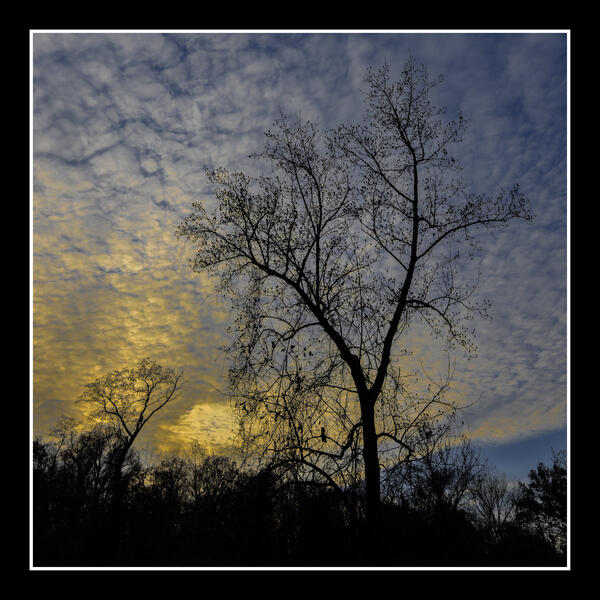 Mother & Child Reunion
Mother & Child ReunionIn thinking of America, I sometimes find myself admiring her bright blue sky — her grand old woods — her fertile fields — her beautiful rivers — her mighty lakes, and star-crowned mountains. But my rapture is soon checked, my joy is soon turned to mourning. When I remember that all is cursed with the infernal actions of slaveholding, robbery and wrong, — when I remember that with the waters of her noblest rivers, the tears of my brethren are borne to the ocean, disregarded and forgotten, and that her most fertile fields drink daily of the warm blood of my outraged sisters, I am filled with unutterable loathing.
Frederick Douglass
Letter to William Lloyd Garrison January 1, 1846Available for Purchase -
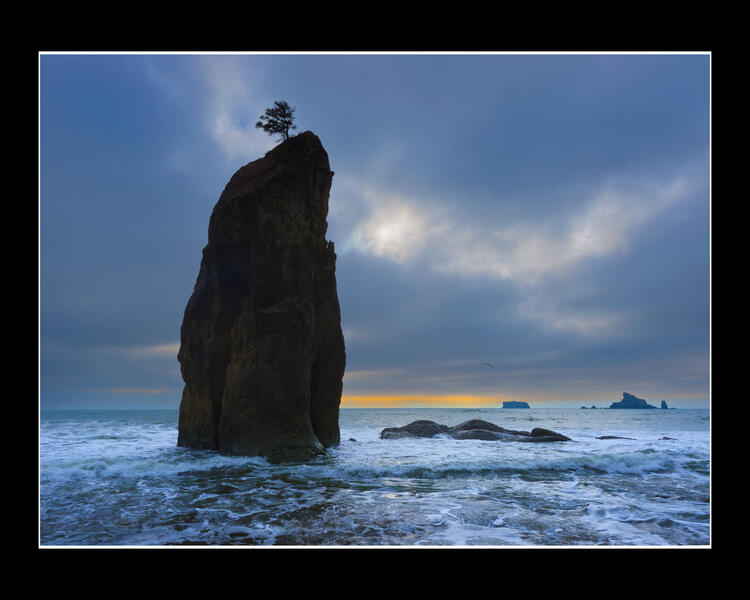 Rialto Beach
Rialto BeachHowever little we may be attached to the world, we never can wholly forget it, or bear to be wholly forgotten by it. Disgusted at the guilt or absurdity of mankind, the misanthrope flies from it, resolves to become a hermit, and buries himself in the cavern of some gloomy rock. While hate inflames his bosom, possibly he may feel contented with his situation: But when his passions begin to cool; when time has mellowed his sorrows, and healed those wounds which he bore with him to his solitude, think you that content becomes his companion? Ah! no, Rosario. No longer sustained by the violence of his passions, he feels all the monotony of his way of living, and his heart becomes the prey of ennui and weariness. He looks round, and finds himself alone in the universe: The love of society revives in his bosom, and he pants to return to that world which he has abandoned. Nature loses all her charms in his eyes: No one is near him to point out her beauties, or share in his admiration of her excellence and variety. Propped upon the fragment of some rock, He gazes upon the tumbling waterfall with a vacant eye, he views without emotion the glory of the setting sun. Slowly he returns to his cell at evening, for no one there is anxious for his arrival; He has no comfort in his solitary unsavoury meal: He throws himself upon his couch of moss despondent and dissatisfied, and wakes only to pass a day as joyless, as monotonous as the former. Man was born for society.
Matthew Gregory Lewis
The MonkAvailable for Purchase -
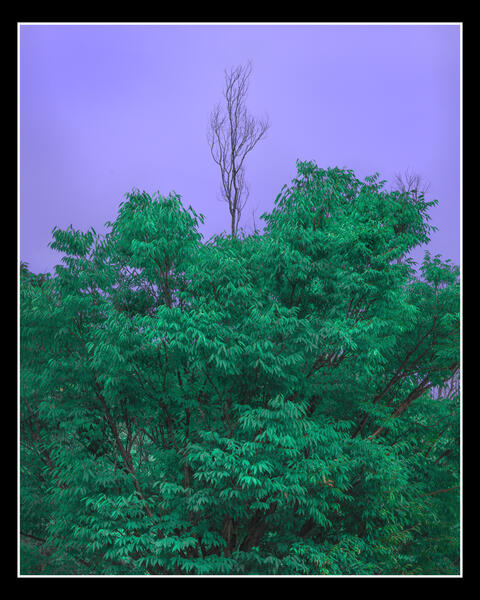 Bare Branch
Bare BranchI thought scientists were going to find out exactly how everything worked, and then make it work better. I fully expected that by the time I was twenty-one, some scientist, maybe my brother, would have taken a colour photograph of God Almighty — and sold it to Popular Mechanics magazine. Scientific truth was going to make us so happy and comfortable.
What actually happened when I was twenty-one was that we dropped scientific truth on Hiroshima.
Kurt Vonnegut
Bennington College Address (1970)Available for Purchase -
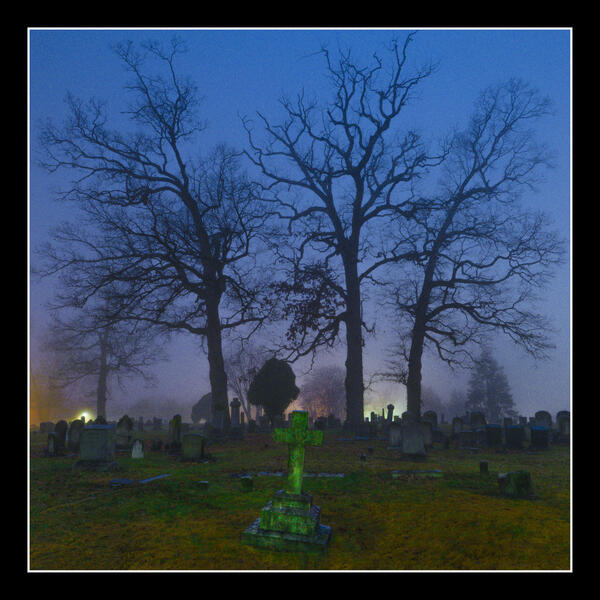 GraveYardCross.jpg
GraveYardCross.jpgReligion is a totalitarian belief. It is the wish to be a slave. It is the desire that there be an unalterable, unchallengeable, tyrannical authority who can convict you of thought crime while you are asleep, who can subject you to total surveillance around the clock every waking and sleeping minute of your life, before you’re born and, even worse and where the real fun begins, after you’re dead. A celestial North Korea. Who wants this to be true? Who but a slave desires such a ghastly fate? I’ve been to North Korea. It has a dead man as its president, Kim Jong-Il is only head of the party and head of the army. He’s not head of the state. That office belongs to his deceased father, Kim Il-Sung. It’s a necrocracy, a thanatocracy. It’s one short of a trinity I might add. The son is the reincarnation of the father. It is the most revolting and utter and absolute and heartless tyranny the human species has ever evolved. But at least you can fucking die and leave North Korea!
Christopher HitchensAvailable for Purchase -
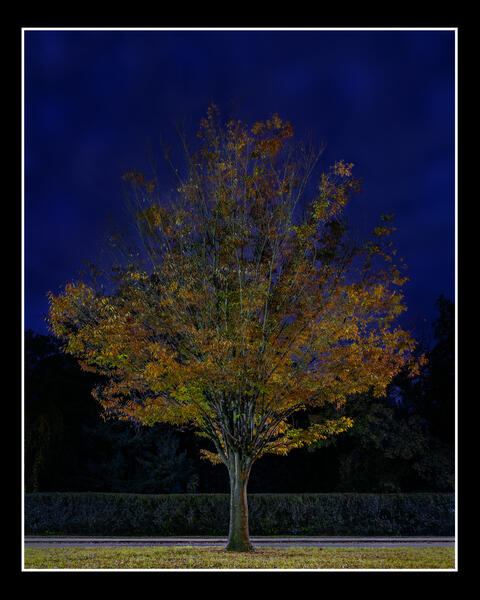 Fall Change
Fall ChangeI might think of the trees and how simply they let go, let fall the riches of a season, how without grief, it seems they can let go and go deep into their roots for renewal and sleep. It might be wise to imitate the trees. Lose in order to recover, remember that nothing remains for long, not physical pain, not psychic pain. I might try to sit it out. Let it pass.”
May Sarton
Journal of a SolitudeAvailable for Purchase -
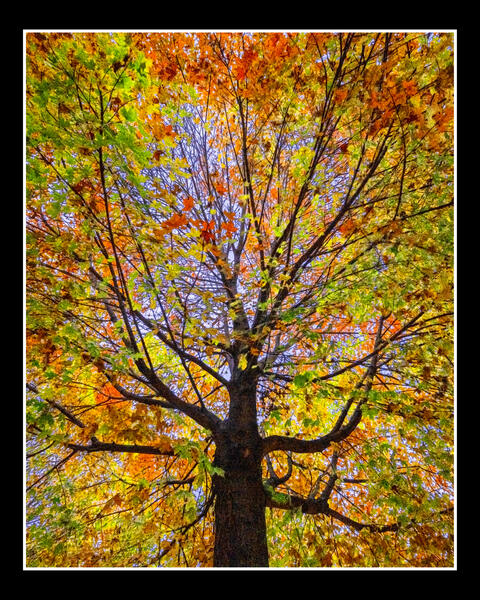 Psycho Maple
Psycho MaplePsychedelics are illegal not because a loving government is concerned that you may jump out of a third story window. Psychedelics are illegal because they dissolve opinion structures and culturally laid down models of behaviour and information processing. They open you up to the possibility that everything you know is wrong. Part of what psychedelics do is they decondition you from cultural values. This is what makes it such a political hot potato. Since all culture is a kind of con game, the most dangerous candy you can hand out is one which causes people to start questioning the rules of the game.
Terence McKennaAvailable for Purchase -
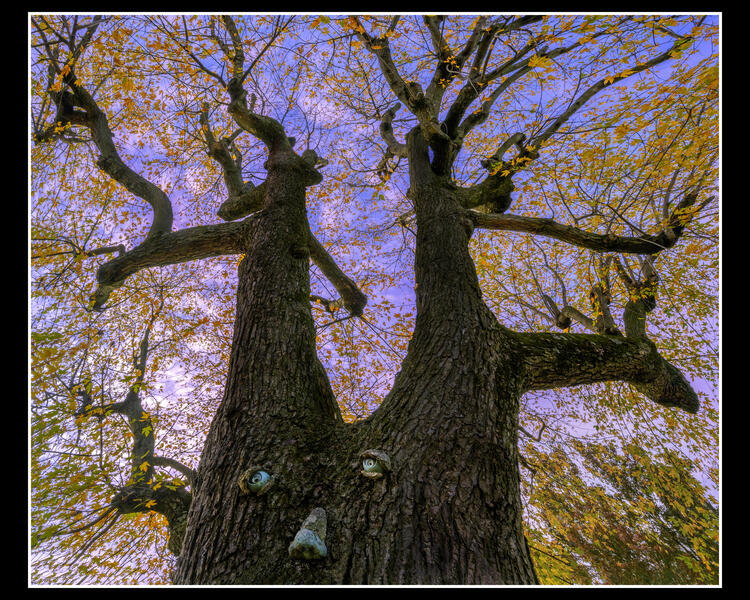 Face Tree
Face TreeA few weeks into our stay, I made a friend who wanted to improve his English as much as I wanted to improve my French. We met one day out in the crowd in front of Notre Dame. We walked to the Latin Quarter. We walked to a wine shop. Outside the wine shop there was seating. We sat and drank a bottle of red. We were served heaping piles of meats, bread, and cheese. Was this dinner? Did people do this? I had not even known how to imagine it. And more, was this all some elaborate ritual to get an angle on me? My friend paid. I thanked him. But when we left I made sure
he walked out first. He wanted to show me one of those old buildings that seem to be around every corner in that city. And the entire time he was leading me, I was sure he was going to make a quick turn into an alley, where some dudes would be waiting to strip me of…what, exactly? But my new friend simply showed me the building, shook my hand, gave a fine bon soirée, and walked off into the wide open night. And watching him walk away, I felt that I had missed part of the experience because of my eyes, because my eyes were made in Baltimore, because my eyes were blindfolded by fear.
Ta-Nehisi Coates
Between the World and MeAvailable for Purchase -
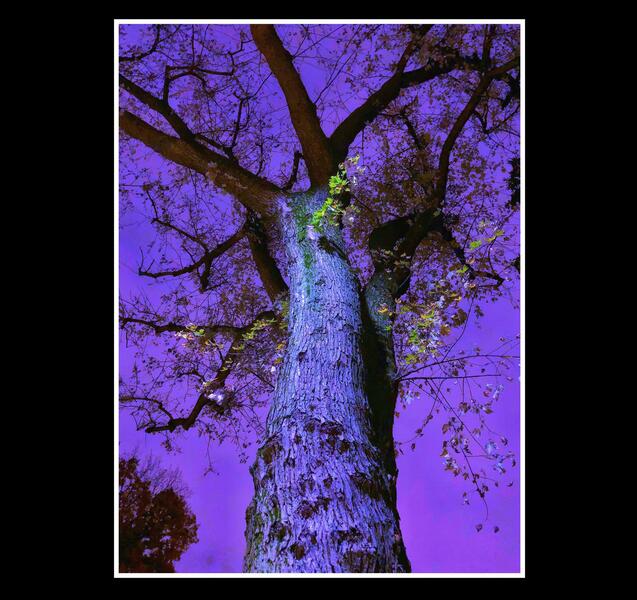 No one can know in advance how and where the night will come
No one can know in advance how and where the night will comeWe don't need to retire to a cloister or the desert for years on end to experience a true dark night; we don't even have to be pursuing any particular "spiritual" path. Raising a challenging child, or caring for a failing parent for years on end, is at least as purgative as donning robes and shaving one's head; to endure a mediocre work situation for the sake of the paycheck demands at least as much in the way of daily surrender as do years of pristine silence in a monastery. No one can know in advance how and where the night will come, and what form God's darkness will take. Tim Farrington A Hell of Mercy
-
 they taught was that no one was ridiculous or bad or disgustingI think about my education sometimes. I went to the University of Chicago for awhile after the Second World War. I was a student in the Department of Anthropology. At that time they were teaching that there was absolutely no difference between anybody. They may be teaching that still. Another thing they taught was that no one was ridiculous or bad or disgusting. Shortly before my father died, he said to me, ‘You know – you never wrote a story with a villain in it.’ I told him that was one of the things I learned in college after the war. Kurt Vonnegut Slaughterhouse-Five
they taught was that no one was ridiculous or bad or disgustingI think about my education sometimes. I went to the University of Chicago for awhile after the Second World War. I was a student in the Department of Anthropology. At that time they were teaching that there was absolutely no difference between anybody. They may be teaching that still. Another thing they taught was that no one was ridiculous or bad or disgusting. Shortly before my father died, he said to me, ‘You know – you never wrote a story with a villain in it.’ I told him that was one of the things I learned in college after the war. Kurt Vonnegut Slaughterhouse-Five -
 only on the condition of humility and reverence before the world that our species will be able to remain in itWe have lived by the assumption that what was good for us would be good for the world. And this has been based on the even flimsier assumption that we could know with any certainty what was good even for us. We have fulfilled the danger of this by making our personal pride and greed the standard of our behavior toward the world - to the incalculable disadvantage of the world and every living thing in it. And now, perhaps very close to too late, our great error has become clear. It is not only our own creativity - our own capacity for life - that is stifled by our arrogant assumption; the creation itself is stifled. We have been wrong. We must change our lives, so that it will be possible to live by the contrary assumption that what is good for the world will be good for us. And that requires that we make the effort to know the world and to learn what is good for it. We must learn to cooperate in its processes, and to yield to its limits. But even more important, we must learn to acknowledge that the creation is full of mystery; we will never entirely understand it. We must abandon arrogance and stand in awe. We must recover the sense of the majesty of creation, and the ability to be worshipful in its presence. For I do not doubt that it is only on the condition of humility and reverence before the world that our species will be able to remain in it. Wendell Berry The Art of the Commonplace: The Agrarian Essays
only on the condition of humility and reverence before the world that our species will be able to remain in itWe have lived by the assumption that what was good for us would be good for the world. And this has been based on the even flimsier assumption that we could know with any certainty what was good even for us. We have fulfilled the danger of this by making our personal pride and greed the standard of our behavior toward the world - to the incalculable disadvantage of the world and every living thing in it. And now, perhaps very close to too late, our great error has become clear. It is not only our own creativity - our own capacity for life - that is stifled by our arrogant assumption; the creation itself is stifled. We have been wrong. We must change our lives, so that it will be possible to live by the contrary assumption that what is good for the world will be good for us. And that requires that we make the effort to know the world and to learn what is good for it. We must learn to cooperate in its processes, and to yield to its limits. But even more important, we must learn to acknowledge that the creation is full of mystery; we will never entirely understand it. We must abandon arrogance and stand in awe. We must recover the sense of the majesty of creation, and the ability to be worshipful in its presence. For I do not doubt that it is only on the condition of humility and reverence before the world that our species will be able to remain in it. Wendell Berry The Art of the Commonplace: The Agrarian Essays









